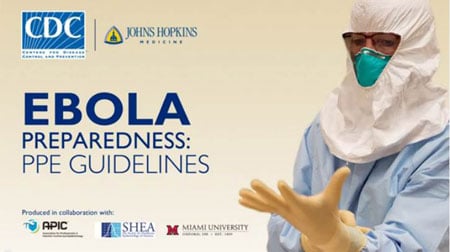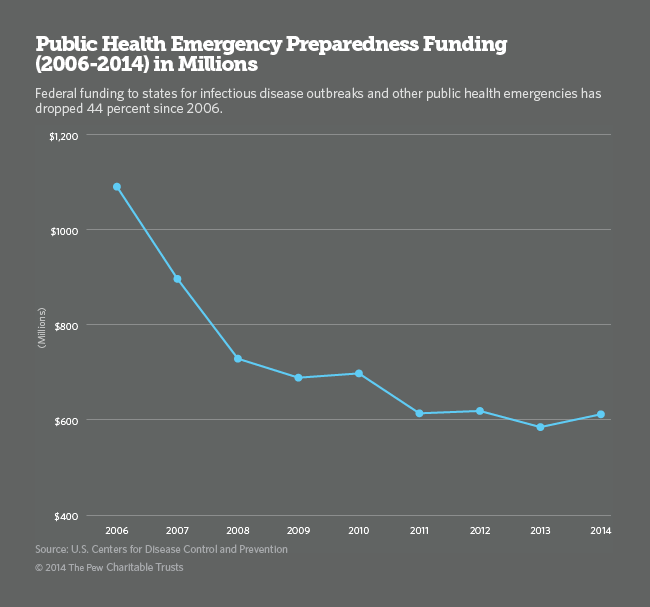"We're Not In a Panic Now, But We're Starting to Get Tired": Ebola Efforts Tax Strapped Health Agencies
Editor's Note: The following comments are from a speech delivered by Dr. Margaret Chan, Director-General of the World Health Organization on November 3, 2014
"When heads of state in non-affected countries talk about Ebola, they rightly attribute the outbreak's unprecedented severity to the 'failure to put basic public health infrastructures in place.'
"Without fundamental public health infrastructures in place, no country is stable. No society is secure. No resilience exists to withstand the shocks that our 21st century societies are delivering with ever-greater frequency and force, whether from a changing climate or a runaway killer virus.
"The second argument is this. Ebola emerged nearly four decades ago. Why are clinicians still empty-handed, with no vaccines and no cure?
"Because Ebola has historically been confined to poor African nations. The R&D incentive is virtually non-existent. A profit-driven industry does not invest in products for markets that cannot pay. WHO has been trying to make this issue visible for ages. Now people can see for themselves."
By Christine Vestal, Stateline
Dwindling resources may make it difficult for public health departments across the country to carry out intensive airport screenings, patient monitoring, public education and other preparations for a potential Ebola outbreak in the US.
Since 2008, diminishing federal funding for public health preparedness has meant the loss of 51,000 state and local public health jobs — more than one in five, according to a new survey by the Association of State and Territorial Health Officials. Congressional hearings to consider additional funding to prepare for an Ebola outbreak in the US are scheduled for next week.
"It's critically important to have a sustainable infrastructure, tools and the necessary resources to effectively address all potential health threats to the public, not just Ebola," said James Blumenstock, emergency preparedness officer for the Association of State and Territorial Health Officials. "Public health threats don’t come one at a time, especially this time of year."
Just as the first flu cases were cropping up last month, the Centers for Disease Control and Prevention (CDC) issued new guidelines requiring public health officials to monitor travelers entering the US from West African countries Liberia, Sierra Leone and Guinea for 21 days.

More Articles
- Monetary Policy Report Prepared at the Federal Reserve Bank of Richmond, Expectations for Future Growth Were Mostly Unchanged
- Ferida Wolff Writes: This Holiday Season
- Journalist's Resource: Religious Exemptions and Required Vaccines; Examining the Research
- Consumer Financial Protection Bureau (CFPB): Lenders Cannot Discriminate Based on Sexual Orientation or Gender Identity
- Kaiser Family Foundation (KFF), February 8th: This Early Stage of the COVID-19 Vaccine Roll-Out, Most Older Adults Have Not Yet Been Vaccinated As Supply Remains Limited
- The GAO Finds: Elder Financial Exploitation — The Fraudulent or IIlegal Use of An Older Adult's Funds or Property — Has Far-reaching Effects on Victims and Society
- Pew Trusts, Stateline: Poverty Grows Despite Economic Recovery; Left Behind
- How are States Prioritizing Who Will Get the COVID-19 Vaccine First? CDC’s Advisory Committee on Immunization Practices (ACIP) Released an Interim Recommendation For the Highest Priority Group
- Stateline: Many Faithful Say It’s Time to Gather. Some Governors Disagree
- Pew Trust's Stateline: Staffing Nursing Homes Was Hard Before the Pandemic. Now It’s Even Tougher.






